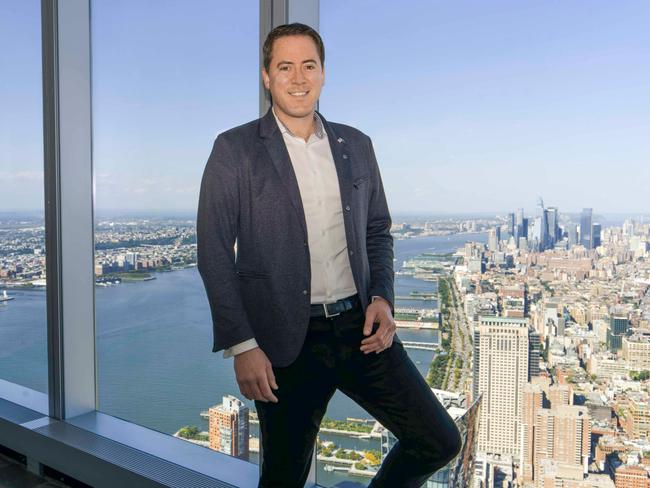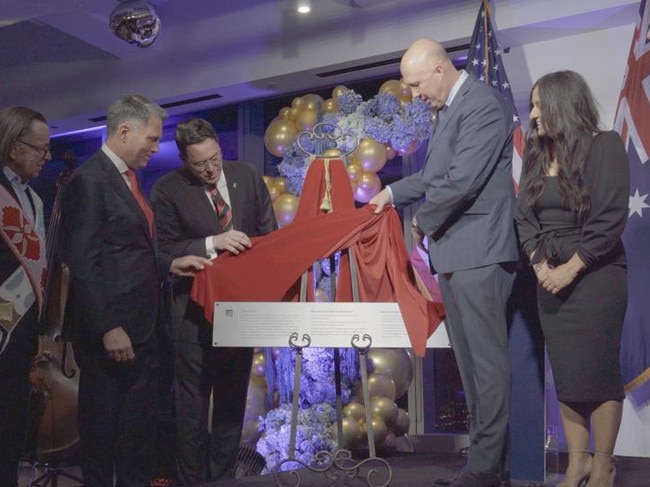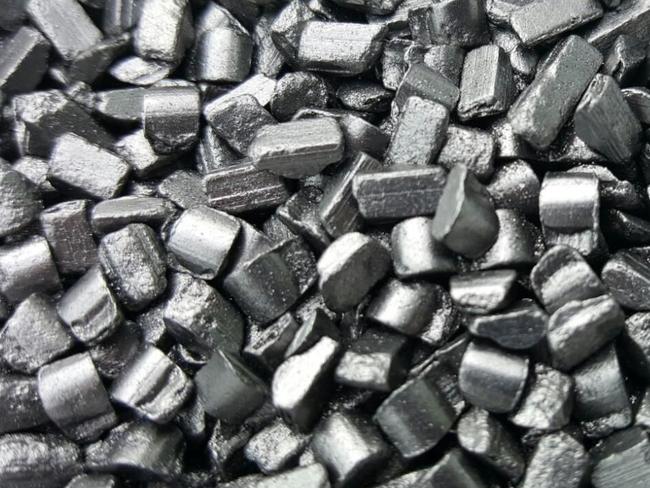Bubs Australia, Tritium and Scale Facilitation among Australia’s US business success stories in 2022
From averting America’s baby formula crisis to fuelling the electric car revolution, these are the Aussie businesses that made it big in the US this year.
Companies
Don't miss out on the headlines from Companies. Followed categories will be added to My News.
FROM averting America’s baby formula crisis to fuelling the electric vehicle revolution, these are the Aussie businesses that made it big in the United States this year.
They have built factories in Tennessee, opened offices at the most iconic address in New York, and even received praise from the White House.
Their success stories – some of which unfolded overnight and others that have been years in the making – highlight the strength of Australia’s trading relationship with the US.
Bubs Australia
A crisis in the US was the opportunity of a lifetime for Bubs Australia.
Earlier this year, American parents were left scrambling to find baby formula after a major safety recall left store shelves empty. To fill the breach, US authorities temporarily eased import restrictions and the Sydney-based manufacturer stepped up.

Speaking at last month’s Austrade awards, where Bubs Australia was named Australia’s exporter of the year, executive chairman Dennis Lin recalled how staff slept and showered at the office to ensure they were one of the first companies to be approved to help.
They shipped more than 1.25 million tins of infant formula – the equivalent of 27.5 million bottles – to the US as part of the Biden administration’s “Operation Fly Formula”.
Joe Biden personally thanked Bubs Australia’s founder and managing director Kristy Carr during a virtual meeting in June.
“We are delighted we’re able to help out in some way and bring Bubs infant formula products to American families,” she told the President.
Tritium
Another Australian business to receive a presidential stamp of approval this year was Tritium, the Queensland manufacturer of electric vehicle chargers.
In February, Mr Biden joined Tritium chief executive Jane Hunter to announce the company would build its first factory in the US, a move the President said would “ripple thousands of miles in every direction”.

“This is great news for workers across the country for an economy and frankly, for the planet,” he said.
With the US planning for electric vehicles to make up half of all new car sales by 2030, Tritium is set to play a key role in providing the necessary fast-charging infrastructure.
Its Tennessee factory opened in August, employing more than 500 workers.
“When we make chargers here in the US, we reduce supply chain and shipping delays, and we help build the manufacturing ecosystem that will employ more Americans,” Ms Hunter said.
Scale Facilitation
No other company reached new heights like Scale Facilitation this year.
The firm – which helps to commercialise innovative ideas – opened its New York office on the 82nd floor at One World Trade Center, taking on what is the highest full-floor commercial lease in the US.

This month’s high-powered opening was full of praise for founder David Collard, with Deputy Prime Minister Richard Marles declaring he was “a force of nature”.
“We could not be more proud of you,” he said.
Opposition Leader Peter Dutton compared Mr Collard to Superman and said he had a rare ability “to see around corners and over the horizon”.
Scale Facilitation’s signature initiative so far is Recharge Industries, which is developing a massive battery production facility in Mr Collard’s hometown of Geelong, aided by a technology-sharing deal with a top American battery firm.
Construction is expected to begin next year and the factory is due to open in 2026.

Jervois Global
Australian mining company Jervois hit the headlines this year when it opened the only cobalt mine in the US.
The critical mineral is used in everything from smartphones and electric vehicles to fighter jets. But about 75 per cent of the world’s supply comes from the Democratic Republic of Congo, up to 90 per cent of which is controlled by China.
Jervois chief executive Bryce Crocker said the company was “proud to be part of the solution” by opening the mine in Idaho.

Australia’s ambassador to the US Arthur Sinodinos, who attended the opening in October along with senior American officials, said the mine would make “a critical contribution to defence and security”.
The mine is expected to reach full production early next year, with Mr Crocker saying he hoped it could be expanded to include what would be the first cobalt refinery in the US as well.
Internet 2.0
Working across Australia and the US, cybersecurity firm Internet 2.0 has been at the forefront of critical issues of online safety, privacy and security.
In November, the firm was the only Australian company invited to a two-day White House conference for the Biden administration’s “Countering Ransomware Initiative”, which came in the wake of major cyber attacks in Australia on Optus and Medibank.
It also played a leading role in the debate about TikTok, revealing the app’s excessive data collection and its connections to digital infrastructure in China.
Thank you to @VZhora and the rest of the team at @_CERT_UA for showing us your facility in Kyiv.
— Robert Potter (@rpotter_9) December 12, 2022
Our partnership with #Ukraine means both countries can learn. Australia can benefit from the experience of the first country to endure a real cyber war while sharing expertise. pic.twitter.com/AwTpmLmQLv
And earlier this month, co-chief executive Robert Potter said Internet 2.0 would open an office in Ukraine and had signed a memorandum of understanding with the country’s Ministry of Digital Transformation in its effort to fight back against Russian hackers.
He said the company had provided cybersecurity support, intelligence and training since the beginning of the war, and that the deal was a “great privilege”.
Syrah Resources
Another Australian company to benefit from Mr Biden’s planned electric vehicle revolution is the Melbourne-based Syrah Resources.
In October, the Biden administration handed it a $US219m ($A321.7m) grant to quadruple the size of its US operation to make graphite-based active anode material needed for lithium-ion batteries.

The grant was part of a $US2.8bn ($A4.15bn) package to make millions of batteries for electric cars, and followed another $US102m ($A151.25m) loan earlier in the year for Syrah’s Louisiana facility.
The US is currently completely reliant on China for the material, and Syrah’s facility will be the first of its kind in the US once it starts production in the second half of next year.
Syrah managing director Shaun Verner said the White House grant highlighted “the strategic importance of our integrated operations, and our active anode material facility”.
Originally published as Bubs Australia, Tritium and Scale Facilitation among Australia’s US business success stories in 2022



